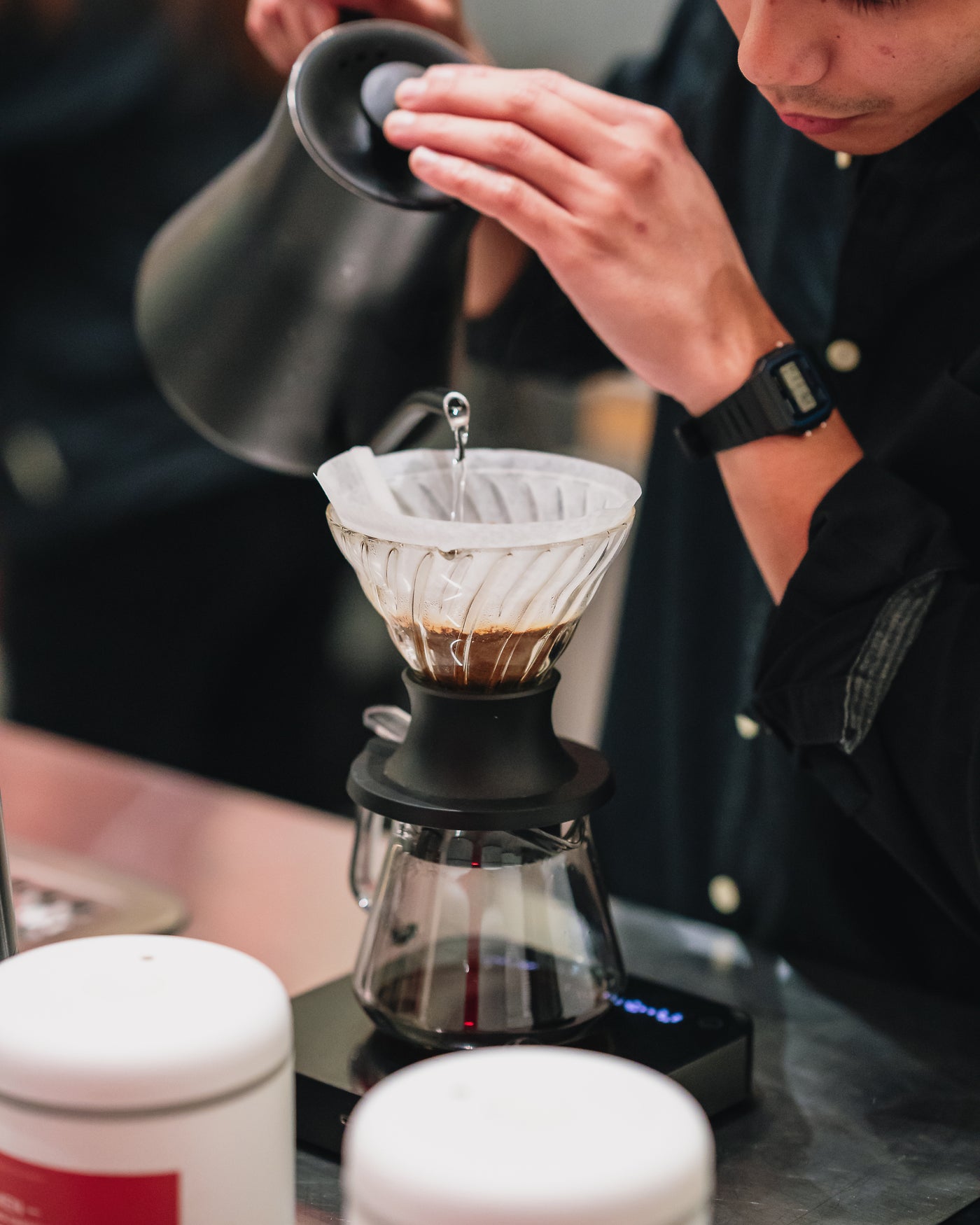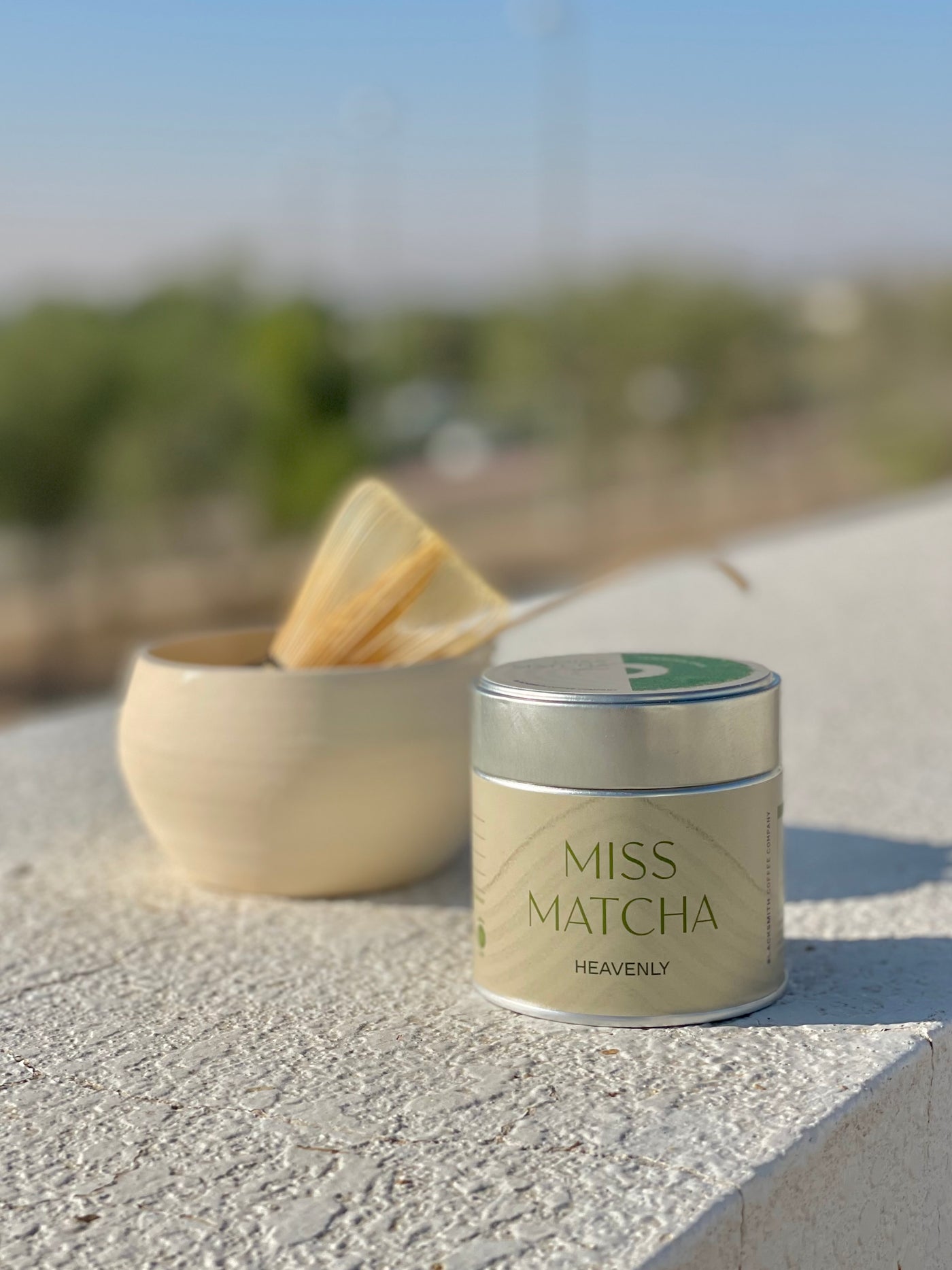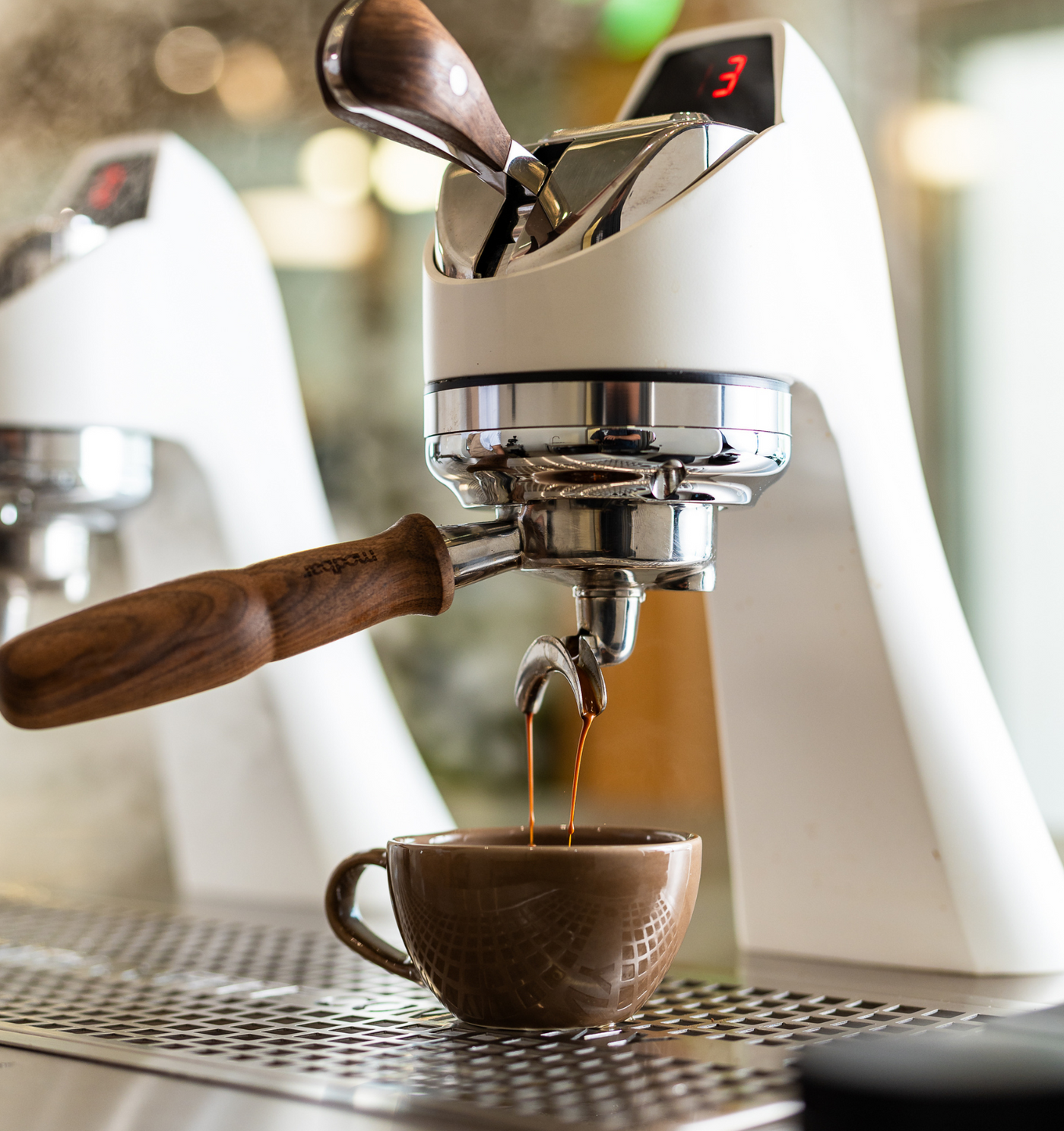The Importance of Coffee Varietals
Coffee varietals are to coffee what grape varietals are to wine—they are the distinct strains of coffee plants that contribute uniquely to the flavor and characteristics of the coffee beans they produce. Understanding the importance of coffee varietals is essential for anyone looking to deepen their appreciation for specialty coffee. Each varietal has its own genetic makeup, which, combined with its growing environment, leads to a wide array of flavors and aromas. This diversity is what makes exploring the world of specialty coffee so intriguing and rewarding.
Varietals are influenced by numerous factors, including the specific species of coffee plants, the geographic region where they are cultivated, and the farming practices employed. For example, the two primary species of coffee plants are Coffea arabica and Coffea canephora (commonly known as Robusta), with Arabica being more prized for its complex flavors and aromatic qualities. Within the Arabica species, there are numerous varietals, each offering a unique taste experience. Some well-known Arabica varietals include Bourbon, Typica, Geisha, and SL28, each with distinct characteristics that set them apart from one another.
The importance of coffee varietals extends beyond just flavor; it also encompasses aspects of sustainability and resilience. Certain varietals are more resistant to diseases and pests, which can be crucial for farmers in maintaining healthy crops and ensuring consistent quality. Additionally, some varietals are better suited to specific climates and altitudes, making them more adaptable to changing environmental conditions. By appreciating the role of coffee varietals, consumers can gain a deeper understanding of the complexities involved in coffee production and the efforts of farmers to cultivate exceptional beans.
Popular Specialty Coffee Varietals
Among the many coffee varietals, a few have garnered widespread acclaim for their exceptional quality and unique flavor profiles. One such varietal is Geisha (or Gesha), which originated in Ethiopia but gained fame in Panama. Geisha is celebrated for its distinctive floral and jasmine-like aroma, bright acidity, and complex fruity flavors, often with notes of bergamot and tropical fruits. This varietal has become synonymous with premium quality and is highly sought after by coffee enthusiasts around the world.
Another notable varietal is Bourbon, which was first cultivated on the island of Bourbon (now Réunion) before spreading to other coffee-growing regions. Bourbon is known for its balanced flavor profile, with a rich sweetness and notes of caramel, chocolate, and red fruit. It thrives in various climates and altitudes, making it a popular choice among farmers and roasters. The versatility of Bourbon allows it to be enjoyed in different brewing methods, from espresso to pour-over, each highlighting different aspects of its complex character.
SL28 and SL34 are two varietals that originate from Kenya and are renowned for their vibrant acidity and wine-like flavors. These varietals were developed by the Scott Agricultural Laboratories (hence the "SL" designation) to thrive in the high-altitude regions of Kenya. SL28, in particular, is celebrated for its bright, juicy acidity and flavors of blackcurrant, tomato, and citrus. The combination of these unique characteristics makes SL28 and SL34 highly prized in the specialty coffee market, often commanding premium prices due to their outstanding quality.
Understanding Flavor Profiles in Coffee
The flavor profile of a coffee refers to the combination of tastes and aromas that define its unique character. These profiles are influenced by a multitude of factors, including the coffee varietal, growing conditions, processing methods, and roasting techniques. Understanding flavor profiles is essential for appreciating the nuances of specialty coffee and can greatly enhance the overall coffee-drinking experience. By recognizing the different components that contribute to a coffee's flavor, consumers can make more informed choices and discover new favorites.
Flavor profiles in coffee are often described using a commonly accepted terminology known as the Coffee Taster's Flavor Wheel, developed by the Specialty Coffee Association (SCA). This wheel categorizes flavors into primary groups such as fruity, floral, nutty, and spicy, with further subdivisions to describe specific notes like berry, citrus, jasmine, almond, or cinnamon. By using this framework, coffee tasters can articulate the sensory attributes of a coffee more precisely, facilitating better communication and understanding among coffee professionals and enthusiasts.
Several key components contribute to a coffee's flavor profile, including aroma, acidity, body, and finish. Aroma refers to the fragrance of the coffee, both before and after brewing, and can range from floral and fruity to earthy and spicy. Acidity is the bright, tangy sensation that can give coffee a lively and refreshing quality, often described as "brightness" or "snap." The body of a coffee refers to its mouthfeel or texture, ranging from light and delicate to full and creamy. The finish is the lingering taste left on the palate after swallowing, which can be clean and crisp or rich and lingering. By understanding these elements, coffee drinkers can better appreciate the complexity and depth of their favorite brews.
Factors Influencing Coffee Flavor
The flavor of coffee is influenced by a myriad of factors, each playing a crucial role in shaping the final cup. One of the primary factors is the altitude at which the coffee is grown. Higher altitudes typically result in slower maturation of coffee cherries, leading to beans with denser cell structures and more concentrated flavors. Coffee grown at high elevations often exhibits brighter acidity and more complex flavor profiles, making it highly prized in the specialty coffee market. Regions such as Ethiopia's Yirgacheffe and Colombia's Huila are renowned for their high-altitude coffees, which are celebrated for their vibrant and nuanced flavors.
Climate and weather conditions also have a significant impact on coffee flavor. Factors such as temperature, rainfall, and sunlight can influence the growth and development of coffee plants, affecting the beans' chemical composition and, consequently, their taste. For example, consistent rainfall and moderate temperatures can promote even ripening of coffee cherries, leading to a more balanced and uniform flavor profile. In contrast, extreme weather conditions such as drought or excessive heat can stress the plants and result in beans with undesirable flavors or lower quality.
Processing methods are another critical factor in determining coffee flavor. The three main processing methods are washed (or wet), natural (or dry), and honey (or semi-washed), each imparting distinct characteristics to the coffee. Washed coffees are known for their clean, bright flavors and pronounced acidity, as the beans are fermented and washed to remove the fruit pulp before drying. Natural processed coffees, on the other hand, are dried with the fruit intact, resulting in a sweeter, fruitier taste with heavier body. Honey processed coffees fall somewhere in between, with the beans partially surrounded by fruit mucilage during drying, leading to a balance of bright acidity and fruity sweetness. Each processing method brings out different aspects of the coffee's flavor, offering a diverse range of taste experiences.
Brewing Techniques for Highlighting Flavor
The brewing technique used can significantly influence the flavors and aromas of coffee, highlighting different aspects of the beans' inherent characteristics. One popular method for brewing specialty coffee is pour-over, which involves manually pouring hot water over coffee grounds in a slow, controlled manner. This technique allows for precise control over variables such as water temperature, flow rate, and extraction time, resulting in a clean and nuanced cup that showcases the coffee's unique flavors. Pour-over methods, such as the Hario V60, Chemex, and Kalita Wave, are favored by many coffee enthusiasts for their ability to highlight the delicate and complex notes of high-quality beans.
Espresso brewing, on the other hand, uses high pressure to force hot water through finely ground coffee, producing a concentrated and intense shot with a rich crema. This method extracts a wide range of flavors, from bright acidity to deep, chocolatey undertones, making it ideal for highlighting the complexity of specialty coffee. Espresso serves as the foundation for various coffee drinks, including cappuccinos, lattes, and macchiatos, each offering a different way to experience the flavors of the coffee.
Another popular brewing method is the French press, which involves steeping coarsely ground coffee in hot water for several minutes before pressing the grounds to the bottom of the pot with a plunger. This method produces a full-bodied and robust cup with a rich mouthfeel, as the metal mesh filter allows more oils and fine particles to pass through compared to paper filters. The French press is particularly well-suited for highlighting the bold and earthy flavors of certain coffee varietals, making it a favorite among those who enjoy a more substantial and flavorful brew.
The Role of Terroir in Coffee Taste
Terroir, a term borrowed from the wine industry, refers to the unique combination of geographic, climatic, and soil conditions that influence the characteristics of agricultural products, including coffee. The concept of terroir is crucial in understanding how different growing regions impart distinct flavors and aromas to coffee beans. Factors such as altitude, temperature, rainfall, soil composition, and even the surrounding flora can all contribute to the unique taste profile of coffee from a specific region.
For example, Ethiopian coffees are often celebrated for their floral and fruity flavors, which can be attributed to the country's diverse microclimates and rich, volcanic soils. The Yirgacheffe region, in particular, is known for producing some of the most sought-after coffees in the world, with beans that exhibit bright acidity, jasmine-like aromas, and complex fruit notes. Similarly, the Sidamo region in Ethiopia produces beans with a rich body and flavors of berries, citrus, and chocolate, reflecting the unique terroir of the area.
In contrast, coffees from Central and South America often display different flavor profiles due to their distinct terroirs. Colombian coffees, for instance, are known for their balanced acidity, smooth body, and flavors of caramel, nuts, and red fruit. The Huila region in Colombia, with its high altitudes and fertile volcanic soils, produces some of the most exceptional coffees in the country. Meanwhile, Brazilian coffees, particularly those from the Minas Gerais region, are characterized by their low acidity, full body, and rich, chocolatey flavors, influenced by the region's warm climate and diverse soil types.
Understanding the role of terroir in coffee taste allows consumers to appreciate the diversity of flavors that different regions offer. It also highlights the importance of sustainable farming practices and environmental stewardship in preserving the unique characteristics of coffee-growing areas. By supporting farmers who prioritize terroir and quality, coffee lovers can enjoy a richer and more varied coffee experience.
Tasting Notes: How to Identify Flavors in Coffee
Identifying flavors in coffee can be a rewarding and enlightening experience, enhancing one's appreciation for the complexity and artistry involved in coffee production. Tasting, or "cupping," coffee involves a systematic approach to evaluating the sensory attributes of the brew, including aroma, flavor, acidity, body, and finish. By honing their tasting skills, coffee enthusiasts can develop a more discerning palate and better articulate the characteristics of different coffees.
The first step in identifying flavors in coffee is to engage the sense of smell. Aroma plays a significant role in the overall tasting experience, as the olfactory system is closely linked to the perception of flavor. To fully appreciate the aroma, freshly ground coffee should be sniffed before brewing, and the brewed coffee's fragrance should be inhaled before tasting. Common aromatic notes include floral, fruity, nutty, spicy, and earthy, with each adding a unique dimension to the coffee's profile.
When tasting coffee, it's essential to take small sips and allow the liquid to cover the entire palate, ensuring that all taste receptors are engaged. Pay attention to the initial flavor impressions, which can include sweetness, acidity, bitterness, and saltiness. As the coffee cools and evolves on the palate, additional flavors may emerge, revealing the complexity and depth of the brew. It's helpful to use the Coffee Taster's Flavor Wheel as a reference, identifying specific notes such as citrus, berry, chocolate, or caramel.
Acidity, body, and finish are also critical components of the tasting experience. Acidity provides a bright and lively quality to the coffee, often described as "crisp" or "vibrant." The body refers to the coffee's mouthfeel, ranging from light and delicate to full and creamy. The finish is the lingering taste left on the palate after swallowing, which can be clean and refreshing or rich and lingering. By paying attention to these elements, coffee tasters can better understand and appreciate the unique characteristics of each brew.
Specialty Coffee Around the World
The world of specialty coffee is vast and diverse, with each coffee-growing region offering its own unique flavors and traditions. From the highlands of Ethiopia to the volcanic slopes of Central America, specialty coffee provides a window into the rich cultural and agricultural heritage of different countries. Exploring these diverse origins allows coffee lovers to experience a wide range of taste profiles and develop a deeper appreciation for the global coffee community.
Ethiopia, often referred to as the birthplace of coffee, is renowned for its exceptional coffee varietals and distinct flavor profiles. Regions such as Yirgacheffe, Sidamo, and Harrar produce some of the most celebrated coffees in the world, known for their bright acidity, floral aromas, and complex fruit flavors. Ethiopian coffee is often processed using traditional methods, preserving the unique characteristics of the beans and offering a glimpse into the country's rich coffee culture.
Central America is another prominent region for specialty coffee, with countries such as Costa Rica, Guatemala, and El Salvador producing high-quality beans with diverse flavor profiles. Costa Rican coffee is known for its clean, balanced taste and bright acidity, often with notes of citrus and tropical fruit. Guatemalan coffee, particularly from regions like Antigua and Huehuetenango, is celebrated for its rich body, chocolatey sweetness, and vibrant acidity. El Salvador's coffees are prized for their balanced flavors and smooth, silky body, often with notes of red fruit and caramel.
South America, particularly Colombia and Brazil, is a significant player in the specialty coffee market. Colombian coffee is renowned for its balanced acidity, smooth body, and flavors of caramel, nuts, and red fruit, with regions like Huila and Nariño producing some of the finest beans. Brazilian coffee, especially from Minas Gerais, is characterized by its low acidity, full body, and rich, chocolatey flavors. The diversity of terroirs and processing methods in South America ensures a wide range of taste experiences for coffee enthusiasts.
Conclusion: Embracing the Specialty Coffee Experience
The journey through the world of specialty coffee is a fascinating and enriching experience, offering endless opportunities to discover new flavors, varietals, and brewing methods. By understanding the importance of coffee varietals, recognizing the factors that influence flavor, and developing tasting skills, coffee lovers can deepen their appreciation for the complexities of this beloved beverage. The diverse origins and unique terroirs of specialty coffee provide a rich tapestry of taste experiences, each cup telling a story of its origins and the passionate farmers who cultivate it.
Embracing the specialty coffee experience also involves supporting sustainable and ethical practices in the coffee industry. By choosing to purchase coffee from reputable sources that prioritize quality, environmental stewardship, and fair labor practices, consumers can make a positive impact on the livelihoods of coffee farmers and the preservation of coffee-growing regions. This commitment to sustainability ensures that future generations can continue to enjoy the rich diversity and exceptional quality of specialty coffee.
Whether you are a seasoned aficionado or a curious newcomer, the world of specialty coffee offers a wealth of experiences to explore and savor. From the bright and floral notes of Ethiopian Yirgacheffe to the rich, chocolatey tones of Brazilian Santos, each cup is an invitation to embark on a sensory adventure. By embracing the nuances of coffee varietals, flavor profiles, and brewing techniques, you can elevate your coffee palate and transform the ordinary coffee experience into an extraordinary journey. So, pour yourself a cup, take a moment to savor the aroma and flavors, and embark on your own exploration of the captivating world of specialty coffee.










